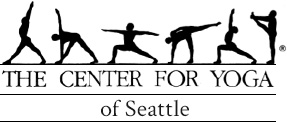When it comes to yoga mats, there are so many options out there that it can be extremely confusing to select the one that suits your needs. But the style of yoga you practice will help you determine the qualities you’re looking for in a mat. Here, we provide you with some basic information and recommendations to help you select your yoga mat, no matter what style you practice.
Basic classes
For yoga newbies, there’s no need to invest a large amount of money in a $100 mat. Most beginner classes are gently paced to help you grasp the foundation of basic postures, alignment, and breathing techniques. Chances are, you won’t be twisting your body into extreme poses or jumping all over the place. That’s why it makes sense to purchase a less expensive mat if you’re taking basic classes.
The ideal mat would be one with good traction, comfort, and stability. You’ll want something that is soft and able to cushion your bones and joints, in order to avoid any unexpected injuries from the practice.
Flow classes
Flow classes are a rigorous practice that involve active engagement on your mat. You’ll be performing challenging postures that require you to push in one direction with your hands and the other direction with your feet. The practice can be so intense that it's possible your palms will sweat a lot.
Since you’ll constantly be moving into poses and sweating a lot, your mat needs to have great traction and provide good grip in order to prevent you from slipping or hurting yourself.
Restorative classes
During restorative yoga classes, you’ll focus on performing passive, floor-based moves for extended periods of time. The purpose of restorative yoga is to exercise your connective tissues, joints, and bones by holding a seated posture for up to 20 minutes at a time.
For this style, look for a thick mat with a lot of cushioning, because you’ll be sitting or lying on the floor for a very long time. For the best experience, we recommend mats that are at least 5mm thick or even more.
Heated classes
In hot yoga classes, temperatures can range between 98 and 105 degrees. The studio will be blazing hot and you will sweat profusely. This means you’re at risk of slipping on your mat and injuring yourself. Most people try to sop up the sweat with a towel, but that’s not going to cut it unless you have a suitable mat in the first place.
Invest in a mat that provides non-slip grip and good traction, coupled with good sweat absorption material. This keeps your mat sweat-free, allowing you to survive through demanding poses without slipping.
Having a stable and comfortable mat is absolutely vital if you want to practice yoga safely - you wouldn’t want your mat to shift underneath when you’re trying to perform a headstand or other complex pose.
Looking to take up yoga? Get in touch with our expert instructors today and learn more about the classes we offer.



Leave a comment!
You must be logged in to post a comment.